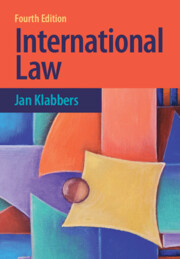
Anthropology, History, and Education
Series: The Cambridge Edition of the Works of Immanuel Kant;
- Publisher's listprice GBP 159.00
-
75 962 Ft (72 345 Ft + 5% VAT)
The price is estimated because at the time of ordering we do not know what conversion rates will apply to HUF / product currency when the book arrives. In case HUF is weaker, the price increases slightly, in case HUF is stronger, the price goes lower slightly.
- Discount 10% (cc. 7 596 Ft off)
- Discounted price 68 366 Ft (65 111 Ft + 5% VAT)
Subcribe now and take benefit of a favourable price.
Subscribe
75 962 Ft

Availability
Estimated delivery time: Expected time of arrival: end of January 2026.
Not in stock at Prospero.
Why don't you give exact delivery time?
Delivery time is estimated on our previous experiences. We give estimations only, because we order from outside Hungary, and the delivery time mainly depends on how quickly the publisher supplies the book. Faster or slower deliveries both happen, but we do our best to supply as quickly as possible.
Product details:
- Publisher Cambridge University Press
- Date of Publication 29 November 2007
- ISBN 9780521452502
- Binding Hardback
- No. of pages614 pages
- Size 229x152x38 mm
- Weight 1000 g
- Language English 0
Categories
Short description:
This 2007 volume contains all of Kant's major writings on human nature.
MoreLong description:
Anthropology, History, and Education, first published in 2007, contains all of Kant's major writings on human nature. Some of these works, which were published over a thirty-nine year period between 1764 and 1803, had never before been translated into English. Kant's question 'What is the human being?' is approached indirectly in his famous works on metaphysics, epistemology, moral and legal philosophy, aesthetics and the philosophy of religion, but it is approached directly in his extensive but less well-known writings on physical and cultural anthropology, the philosophy of history, and education which are gathered in the present volume. Kant repeatedly claimed that the question 'What is the human being?' should be philosophy's most fundamental concern, and Anthropology, History, and Education can be seen as effectively presenting his philosophy as a whole in a popular guise.
"...The essays assembled in this collection present us with Kant's most direct and encompassing characterizations of human nature and are therefore essential reading for a deeper and more complete understanding of his moral philosophy.... The anthropological dimension of Kant's thought is too often neglected. The essays assembled in this collection are essential reading for remedying this deficiency, and they will inevitably challenge us to (re)consider the merit of Kant's account of the human position below the starry heavens above." --
Chris Henry McTavish, Athabasca University, Philosophy in Review
Table of Contents:
Introduction Robert B. Louden; Observations on the feeling of the beautiful and sublime (1764) translated by Paul Guyer; Essay on the maladies of the head (1764) translated by Holly Wilson; Review of Moscati's work of the corporeal essential differences between the structure of animals and humans (1771) translated by G&&&252;nter Z&&&246;ller; Of the different races of human beings (1775) translated by Holly Wilson and G&&&252;nter Z&&&246;ller; Essays regarding the philanthropinum (1776/1777) translated by Robert B. Louden; A note to Physicians (1782) translated by G&&&252;nter Z&&&246;ller; Idea for a universal history with a cosmopolitan aim (1784) translated by Allen W. Wood; Reviews of J. G. Herder's Ideas for the Philosophy of the History of Humanity, Parts 1 and 2 (1785) translated by Allen W. Wood; Determination of the concept of a human race (1785) translated by Holly Wilson and G&&&252;nter Z&&&246;ller; Conjectural beginning of human history (1786) translated by Allen W. Wood; Some remarks on Ludwig Heinrich Jakob's examination of Mendelssohn's Morning Hours (1786) translated by G&&&252;nter Z&&&246;ller; On the Philosophers' medicine of the body (1786) translated by Mary Gregor; On the use of teleological principles in philosophy (1788) translated by G&&&252;nter Z&&&246;ller; From Soemmerring's On the Organ of the Soul (1796) translated by Arnulf Zweig; Anthropology from a pragmatic point of view (1798) translated by Robert B. Louden; Postscript to Christian Gottlieb Mielcke's Lithuanian-German and German-Lithuanian Dictionary (1800) translated by G&&&252;nter Z&&&246;ller; Lectures on pedagogy (1803) translated by Robert B. Louden.
More





